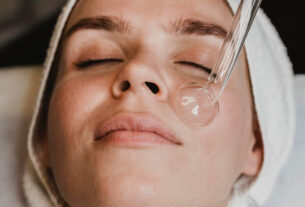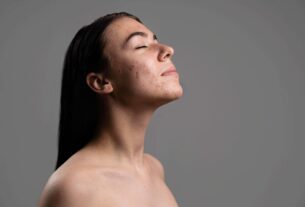Acne is a common skin condition that affects people of all ages, but it’s especially prevalent during adolescence. It can cause pimples, blackheads, whiteheads, and cysts to form on the face, back, and shoulders. If you’re dealing with acne, you’re not alone. Dr. Deepika at Reflection Facethetics Clinic in Whitefield, Bangalore, has helped countless patients understand the causes of acne and how to treat it. Acne can be frustrating, but knowing what causes it and how to prevent it can make a big difference in achieving clearer skin.
What Causes Acne?
Acne happens when hair follicles on the skin become clogged with oil, dead skin cells, and sometimes bacteria. There are several reasons why this can happen:
- Excess Oil Production: Our skin produces oil naturally to keep it moisturized and protected. However, sometimes the skin produces too much oil. When this excess oil mixes with dead skin cells, it can clog pores and lead to acne.
- Hormonal Changes: Hormonal fluctuations, especially during puberty, menstruation, pregnancy, or stress, can increase the production of oil in the skin. This is why many people experience acne during their teenage years or around their period.
- Bacteria: A bacterium called Propionibacterium acnes (P. acnes) can grow inside clogged pores and cause inflammation, leading to acne. This bacterium feeds on the oil trapped in pores, which makes the situation worse.
- Diet: Although diet is not the direct cause of acne, certain foods can contribute to its development. Foods that are high in sugar, dairy, and processed foods can sometimes trigger acne in sensitive individuals.
- Stress: When you’re stressed, your body produces more of a hormone called cortisol. This hormone can increase oil production, making acne worse.
- Medications: Some medications, like steroids, can cause acne as a side effect. If you’re taking any medication and notice acne as a side effect, it’s important to talk to your doctor.
- Genetics: If your parents had acne, you might be more likely to develop it. Genetics play a role in how your skin reacts to the factors mentioned above.
- Improper Skin Care: Using harsh products or not cleaning your skin properly can contribute to acne. Overwashing your face or using products with strong chemicals can irritate the skin, leading to more breakouts.
How Can You Prevent Acne?
Now that we know the causes of acne, it’s important to understand how we can prevent it. While it might not be possible to completely avoid acne, there are several things you can do to reduce its occurrence and keep your skin as clear as possible.
- Keep Your Skin Clean: It is essential to clean your face twice a day. Use a gentle cleanser that suits your skin type to wash away excess oil, dirt, and makeup. Overwashing can strip your skin of its natural oils, which can lead to more oil production.
- Use Non-Comedogenic Products: When choosing skincare or makeup products, always look for the label “non-comedogenic.” This means the product is less likely to clog your pores. Many products can be too heavy and cause breakouts if they’re not formulated for acne-prone skin.
- Moisturize Your Skin: Even if you have oily skin, it’s essential to use a light moisturizer. This will help keep your skin hydrated without making it greasy. Moisturizing also helps balance oil production and prevents your skin from overcompensating by producing more oil.
- Watch Your Diet: Eating a balanced diet can help improve your skin health. Try to reduce your intake of sugary foods, dairy products, and fried foods. Eating more fruits, vegetables, and whole grains can help your skin stay healthy and may reduce acne flare-ups.
- Manage Stress: Since stress can trigger acne, it’s essential to find ways to manage it. Consider practicing relaxation techniques such as yoga, meditation, or deep breathing. Regular exercise can also help reduce stress levels and improve overall well-being.
- Avoid Touching Your Face: Touching your face can transfer bacteria, oil, and dirt from your hands to your skin, leading to breakouts. Try to avoid resting your face on your hands and wash your hands regularly.
- Be Careful with Hair Products. Some, like gels and hairsprays, can clog the pores on your forehead and hairline. Wash your hair regularly and avoid letting hair products contact your skin.
- Use Acne Treatments: Over-the-counter acne treatments that contain ingredients like benzoyl peroxide, salicylic acid, or retinoids can be very effective. These products help kill bacteria, unclog pores, and reduce inflammation.
Conclusion
Acne can be a challenging skin condition, but with the right understanding of its causes and effective prevention methods, it is possible to manage it. Remember, what works for one person may not work for another, so finding the right routine and products for your skin type is key. If you’re struggling with acne, don’t hesitate to seek professional help. Book your consultation at Reflection Facethetics Clinic in Whitefield, Bangalore, with Dr. Deepika today. A personalized approach can help you achieve the clear, glowing skin you’ve been dreaming of!



